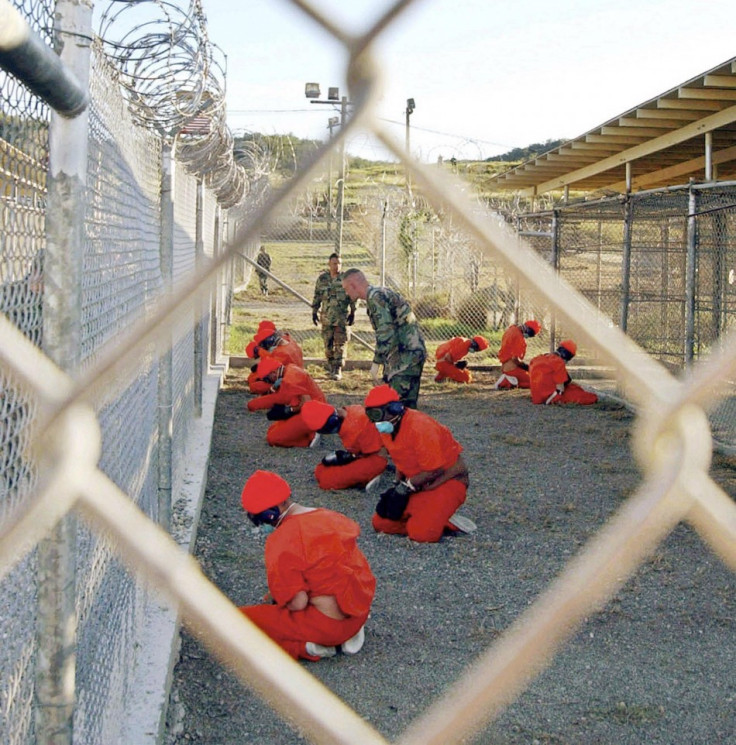The campaign against torture, when will Guantanamo Bay finally close?

Amnesty International has been campaigning against torture and illegal imprisonment from its beginning. Since 1962 the group has denounced countries throughout the world where people are being detained and imprisoned arbitrarily without a fair trial, thus facing torture or other forms of ill-treatment while many are held in conditions that are so poor that they amount to cruel, inhuman or degrading treatment.
According to the Universal Declaration of Human Rights no-one may be subjected to arbitrary arrest, detention or imprisonment.
Detention is seen as 'arbitrary' when there is no legal basis for detention or there are grave violations of the right to a fair trial.
Since its creation Amnesty International has fought for the unconditional release of all prisoners of conscience. According to the organisation people can be made prisoners of conscience for many reasons. Amongst the main cited are: "involvement in non-violent political activities, belonging to a minority group struggling for autonomy, taking part in trade union activities, not using a country's official language, refusing to perform military service on grounds of conscience or gender or sexual identity."
Amnesty's work regarding these issues consists in campaigning for the release of individual prisoners of conscience around the world, calling on governments to make certain that safeguards for a fair trial are fully respected for all prisoners and demanding that national laws and practices conform to international human rights standards to ensure that all prisoners and detainees are treated humanely.
The Urgent Action and Medical Action networks are also an important parts of the organisation as it treats prisoners and detainees whose lives or health are at risk from harsh prison conditions that amount to cruel, inhuman or degrading treatment or punishment.
Following the organisation's work thousands of prisoners have been released but fifty years on and the fight against arbitrary imprisonment and torture is still very much on.
One of the current campaigns of Amnesty International focuses on the closure of Guantanamo Bay, where 50 detainees remains as no countries are willing to accept them.
The first prisoners were transferred to Guantánamo in January 2002, and a total of 800 detainees have since then followed.
Amnesty International notes that "Approximately 300 detainees of around 30 nationalities were still held without charge or trial in November 2007. Nearly 100 of them were Yemenis."
As of 2007 only one Guantanamo detainee had been convicted by military commission, while three detainees had been charged for trial by military commission.
Some of the detainees are confined for a minimum of 22 hours a day in individual steel cells with no windows to the outside and four of those still held were under 18 years old when taken into custody.
It also emerged that detainees were taken into custody in more than ten different countries before being transferred to Guantánamo, without any judicial process. The critical detention conditions allegedly led four detainees to commit suicide while more than a dozen suicide attempts have been reported and other prisoners have gone on hunger strikes.
After US soldier Bradley Manning allegedly turned over The Guantánamo Files to the WikiLeaks website more than a year ago, it became much more difficult for the US authorities to deny ill-treatment and the use of torture.
The documents were first obtained by the New York Times and shared with the Guardian and National Public Radio.
The leaks confirmed one of the main arguments used by Amnesty and relates to the fact that most of the detainee were not arrested by American forces but rather by Pakistani or Afghanistan-based Northern Alliance forces. Unfortunately as turning over potential terrorists was rewarded with thousands of US dollars, some of the forces arrested and accused innocent people that ended up in the American owned camp despite their not being responsible for any criminal activities.
The leaked documents also confirmed that a number of British nationals and residents were held for years even though US authorities knew they were not Taliban or Al-Qaida members. One Briton, Jamal al-Harith, was rendered to Guantánamo simply because he had been held in a Taliban prison and was thought to have knowledge of their interrogation techniques.
The US military tried to hang on to another Briton, Binyam Mohamed, even after charges had been dropped and evidence later on emerged he had been tortured.
Amnesty has also repeatedly denounced the fact that US authorities relied heavily on information obtained from a small number of detainees under torture and continued to maintain their testimony was reliable despite the fact that prisoners only confessed after having being mistreated for hours.
Disturbingly, among those still held captive some are said to be detainees that have been tortured so badly they can never be successfully tried, informers who must be protected from reprisals and a group of Chinese Muslims from the Uighur minority who have nowhere to go.
Following the campaign and denouncement of the use of torture by Amnesty International, which were confirmed by the leaked documents, American authorities were forced to officially admit they had so badly maltreated prisoner N63, called Maad al-Qahtni, that it in fact amounted to torture .
Al-Qahtni was officially captured more than nine years ago, fleeing from the site of Osama bin Laden's last stand in the mountain caves of Tora Bora in 2001.
An official American report says Qahtani, allegedly one of the "Dirty 30" who were Bin Laden's bodyguards, must not be released: "HIGH risk, as he is likely to pose a threat to the US, its interests and allies."
In the reports officials also confess his admissions were obtained by what they call "harsh interrogation techniques in the early stages of detention".
The files however fail to mention the widely-condemned techniques that were employed to obtain "intelligence" and "confessions" from detainees such as waterboarding, sleep deprivation and prolonged exposure to cold and loud music.
It has also now been established that many detainee were sent to Guantanamo just because US forces thought they might be of some intelligence value.
As one of the documents reports "One man was transferred to the facility "because he was a mullah, who led prayers at Manu mosque in Kandahar province, Afghanistan ... which placed him in a position to have special knowledge of the Taliban". After more than a year of captivity US forces released him after, deciding he had no intelligence value.
Another prisoner was shipped to the base "because of his general knowledge of activities in the areas of Khowst and Kabul based as a result of his frequent travels through the region as a taxi driver".
Despite President Obama ordering the closure of Guantanamo Bay, at present, 50 men, including two with links to Britain, remain detained for the sole reason that they have no safe place to go and Amnesty International call for "more European countries to accept detainees who cannot be returned to their countries of origin for fear of torture or other human rights violations."
The existence of Guantanamo has undoubtedly hindered worldwide progress against torture as many governments used it to legitimise their own violations of human right by pointing out that if the United States could do it without being subject to any prosecution so could they.
© Copyright IBTimes 2024. All rights reserved.






















